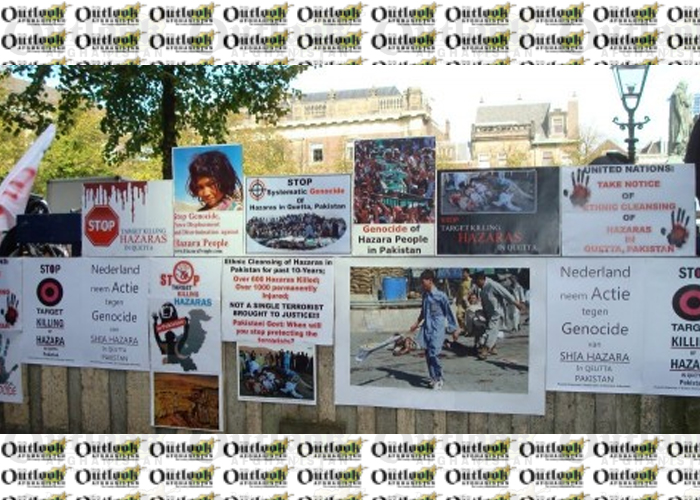The never-ending Hazaras killings or Hazara genocide in Afghanistan have raised a lot of reactions and questions at national, regional, and international levels in recent weeks and months. In recent days, the European Union (EU) that had often been a pioneer in having constructive and humanitarian views about global issues has also shown a reaction against the consecutive massacre of Hazaras in Afghanistan. The European Union (EU) says the killing of Hazaras in Afghanistan must be stopped and the crimes against this ethnic group should be investigated. “From actresses to students, from politicians to singers – all as part of today’s reality & ready to build this country with the support of the EU,” the EU said in tweet posted June 03.
As the local media reported, the remarks of EU come as Tomas Niklasson, the new EU Special Envoy, met with some surviving girl students of Sayed ul-Shuhada school attack west of Kabul. In this disastrous attack on the west of Kabul, as many as 90 Hazara school girls aged 13 to 18 were killed and around 240 others wounded after a car bomb targeted them outside Sayed ul-Shuhada High School followed by two consecutive landmine blasts on May 08, 2020. This deadly attack was so shocking that it sparked widespread national and international reactions that never could be forgotten.
While welcoming the EU humanitarian reaction, the people of Afghanistan expect all members of the international community, especially the United Nations and the Security Council which have moral and legal responsibilities to play a preventive role against all crimes against humanity in Afghanistan. As the families of the victims and the Second Vice President, and also the Afghanistan Independent Human Rights Commission had termed the deadly bombing as a “manifestation of genocide”, the international community should show practical will against the endless catastrophic events. However, denouncing the attack as “atrocious and cowardly” the UNSC had earlier underlined the need to hold the perpetrators, organizers, financiers, and sponsors of the attack accountable and bring them to justice.
The national and international actors call the Hazara successive killings as carnage or genocide because the attacks on Hazara people are different from other terrorist incidents around the country. In fact, the attacks which are endlessly launched on Hazara ethnic groups are deeper, wider, bloodier, and more catastrophic. As everyone knows, known and unknown groups have successively targeted newborn babies, school children, sports clubs, worshipers, civilian transportations, wedding parties, and other civilians. The attacks on Hazaras are also different because Hazaras have been consecutively persecuted in the near and far history of Afghanistan.
Unfortunately, the oppressed conditions of Hazaras seem endless in the country. After catastrophic attacks on Sayyid al-Shuhada schools which led to the killing and injuries of nearly 90 Hazara school girls and injuries of 240 others, once again several attacks were launched in heart of the west of Kabul killing and wounding dozens of civilians in pole-Sokhta, Charahi-Shahid, and Sarekariz area. These attacks were similar to the terrorist attack on the school of Sayyid al-Shuhada schools because these consecutive attacks happened in the west of Kabul targeting innocent civilians who often pertained to the same group of people and the same area. It was also similar because no group has claimed responsibility for the several recent incidents as no one had taken the responsibility for cruel action on Sayyid al-Shuhada schools.
It is widely believed that the war crimes and other systematic crimes which are defined in Article 5 of the Statute of the International Criminal Court have happened in Afghanistan; especially it has frequently happened on Hazara people in Afghanistan. Accordingly, article 2 of the 1948 United Nations Convention on the Prevention and Punishment of the Crime of Genocide, defined it as any acts with intent to destroy, in whole or in part, a national, ethnic, racial, or religious group, as such: killing members of the group; causing serious bodily or mental harm to members of the group; deliberately inflicting on the group conditions of life, calculated to bring about its physical destruction in whole or in part; imposing measures intended to prevent births within the group; [and] forcibly transferring children of the group to another group.
Home » Opinion » The EU: Hazaras Carnage Must Be Stopped
The EU: Hazaras Carnage Must Be Stopped
| Mohammad Zahir Akbari

